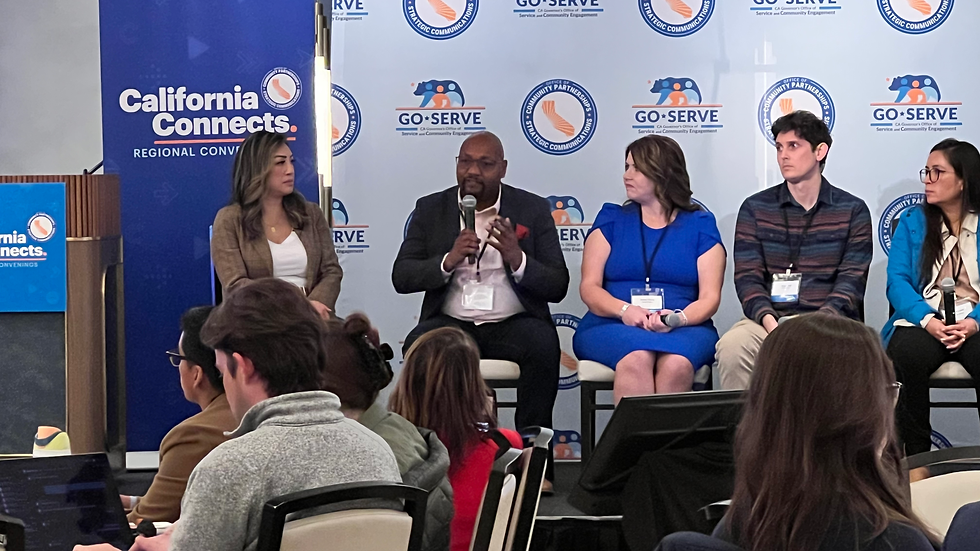NEW STATEWIDE SURVEY RESULTS: Black voters lean toward Newsom/Feinstein in June Primary Contest, inc
- INFO-MD Staff

- May 24, 2018
- 4 min read

Los Angeles, CA – On Friday, the Policy, Research and Practice Initiative (PRPI) released the California African American Policy Priorities Spring 2018 Survey (CAAPPS 2018).
The survey highlights respondent sentiments on a variety of issues important to Black voters. The issues include housing availability and affordability, improved public schooling, justice in relation to community policing and law enforcement, access to mental health services, as well as how candidates for statewide office compare in relation to their support from Black voters. It is a valuable tool for understanding Black voter attitudes in the state of California.
Although the report serves as a key barometer of where statewide primary candidates currently stand relative to their potential share of the Black vote; more importantly, it highlights a range of public policy issues that are most important to Black voters in the state.
“California’s African American electorate has a voice through this poll. Our voices, perspectives, and interests are now at the forefront of state policy and politics. African American voters appear positioned to have major impact on who will be the next Governor and United States Senator. This year’s Wakanda moment appears to apply to elections as well,” said PRPI’s Director, the Honorable Sebastian Ridley-Thomas (Ret.).
CAAPPS 2018 is the only statewide survey that captures such a large segment of Black voters while simultaneously providing a robust sample size of both high and low propensity voters.
“The CAAPPS fills an important void in public opinion research in the state of California and the Nation, especially as African Americans offer a voting base necessary for success in a historically polarized electorate,” said Dr. Chris Towler, an Assistant Professor of Political Science at California State University Sacramento.
“The electoral power of t he Black voter is what makes CAAPPS 2018, timely, relevant and worthy of attention.” said Shakari Byerly of EVITARUS.
Between April 28 and May 14, 1,350 Black voters were surveyed, by telephone (41%) and online (59%), including 621 likely June Primary voters and 729 lower propensity voters. The margin of sampling error was + 2.67 percent at a 95% confidence level. In addition, results were weighted to match the age, partisanship, gender, and geographic location of registered Black voters. Not surprisingly, the character of Black voters in California is consistent with the perspective of Blacks on a national level.
Geographically, the African American population in the state is dispersed as follows: Los Angeles (52%), Other parts of Southern California (12%), San Francisco Bay Area 26%, Sacramento North (6%) and in the Central Valley (4%).
Key findings related to the June Primary showed:
· Although nearly one in five respondents or 19% remained undecided, Lt. Governor Gavin Newsom (35%) maintains a sizeable lead over Former Los Angeles Mayor Antonio Villaraigosa (19%) and State Treasurer John Chiang (9%) among likely June Primary Voters.
· Nearly two-thirds of Black voters indicate a preference for U.S. Senator Diane Feinstein (65%) over State Senate President Pro Tempore Emeritus Kevin de León (12%), while nearly one in five remain undecided.
· Black voters are largely undecided (62%) in the race for Superintendent of Public Instruction – although Assembly Member Tony Thurmond enjoys a ten-point lead over the other candidates with 17% of the vote.
“What I find most interesting about the survey results is the strong support for Gavin Newsom, among respondents who were overwhelmingly Southern Californians, where Antonio Villaraigosa is better known, and later won major Black support among the Black religious, civic, and political leadership establishment between 2001 and 2005, only to have this, and the endorsement of prominent, but local, leaders (during the days when the survey was administered) result in a 2 to 1 preference for Gavin Newsom. These ‘most likely’ voters do not express a significant difference in favorability between the two leading Democrats,” said James Taylor of CSUS.
“Mental and behavioral health access grew from a middling policy concern to a high priority in just two years. Black voters clearly want to see greater focus and action on intervention and alleviation burdens faced by those suffering from mental illness,” said Ridley-Thomas.
Key findings with respect to public policy revealed:
· Nearly 4-in-5 Black voters (78%) identify public education as an “extremely high” priority for their elected representatives to address
· 70% or more rate the following as “extremely high” policy priorities:
Eliminating racial profiling (75%)
Law enforcement accountability (74%)
Making housing more affordable (72%)
Fighting discrimination and institutional racism (71%)
▪ Greater than 60% rate the following as “extremely high” policy priorities:
Creating good paying jobs and reducing unemployment (65%)
Expanding access to mental health services (63%)
Expanding access to quality health care (63%)
Reducing homelessness (61%)
For more information regarding the study can be found at https://goo.gl/cr1vsp
CAAPPS 2018 was commissioned by PRPI and conducted by the public opinion research firm EVITARUS, under the stewardship of public opinion researcher Shakari Byerly.
Ridley-Thomas, is working with stakeholders to advance knowledge of diverse populations, intersectional research, the millennial generation, and innovative public policy. CAAPPS 2018 fulfills that mission.








Comments